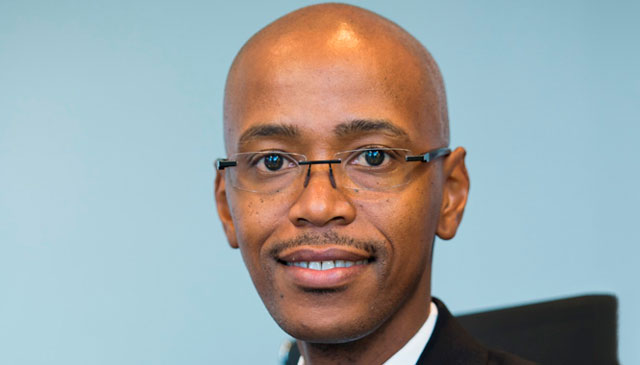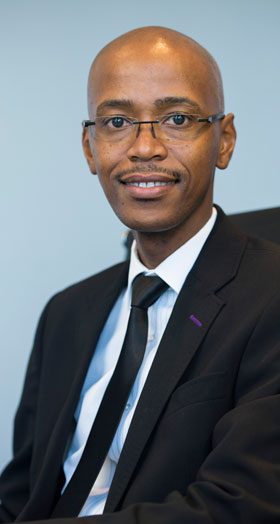
AdaptIT founder and CEO Sbu Shabalala looks far younger than his 40 years. Impeccably dressed and softly spoken, Shabalala, a Durbanite, looks more like a backroom accountant than the head of a JSE-listed IT company.
Over the past 25 years, Shabalala has morphed from a young electronics enthusiast into a shrewd business leader and a role model for young entrepreneurs.
With his carefully considered but unwaveringly confident answers to my questions, Shabalala gives the impression of a man who plays things by the book, but who’s also learnt the value of being decisive.
Shabalala intended to study electrical engineering when he enrolled at the University of Natal (now KwaZulu-Natal), but his growing interest in computers led him to a bachelor’s degree in commerce focusing on business information systems. He took his studies seriously because having the chance to study seemed an opportunity not to be squandered.
“The University of Natal at that time had a new computer lab and, with the advent of the Internet, that’s where we all ended up,” he says. “It was the right place to be, especially for me.”
Shabalala says the best part of his tertiary education was the ability it gave him to “think structurally”. In the mid-1990s, after he’d completed his studies, he joined MultiChoice, which was looking at introducing a digital satellite service (what would become DStv).

“I focused predominantly on ensuring I understood the system — from the credit control and financial management side to understanding the codes of the controls within the systems.”
This led to his “love for building systems”.
“I thought to myself, if this is what systems can do, then what about using them for solving other problems? I was working in a highly systemised environment where we could control devices remotely. It got me thinking about how ICTs can affect production processes.”
It was around that time that Shabalala was introduced to US software company Oracle. He took a year off to train as an Oracle programmer. “I started understanding the finer details around programming and that then shaped my career,” Shabalala says.
He was in Johannesburg at the time, but decided to move back to Durban, where he joined a development company called InfoWave. While there, he built systems for the sugar industry. “It kept me solving problems, but I also ended up implementing the same system around South Africa and in Malawi, Tanzania and Mozambique.”
Getting to roll out the systems he’d help build was invaluable because before then he hadn’t really understood the real-world implications of his work as a developer.
In 2004, Shabalala founded AdaptIT, which eventually merged with InfoWave and listed on the JSE. The company now focuses on cloud computing, business intelligence and analytics, and mobile solutions.
Shabalala believes one of the biggest virtues in running a business is patience. Despite more than a decade and a half of experience in IT, he says he’s “only just getting started”.
“Having the patience to see through the business model you choose is important — instant gratification doesn’t work in business. It’s a long-term journey and you have to be consistent.”
Integrity is essential, too, he says. “If you don’t pay attention to doing business ethically, it just won’t last.”
Shabalala is married with a 15-year-old daughter. His wife, Neo, also works in IT, as a partner at KPMG. His daughter holds national colours in gymnastics. “The family is not putting too much pressure on me because they’re really focused on their own things,” he laughs. “It’s great to have a family that can ‘self sustain’.”
Shabalala, who spends his work week in Johannesburg, describes himself as an avid golfer. He tries to squeeze in a game every Saturday in Durban.
“My family is still based in Durban, so on Friday afternoons I fly down. Durban is a great place for kids to grow up. On Saturdays I catch up with friends and on Sundays I try to ensure I take the family to church.”
Shabalala comes from a religious family — his father is a pastor — and he is a member of the Christian Revival Church, which he describes as “laid back and focused on spiritual well-being”. — (c) 2013 NewsCentral Media




